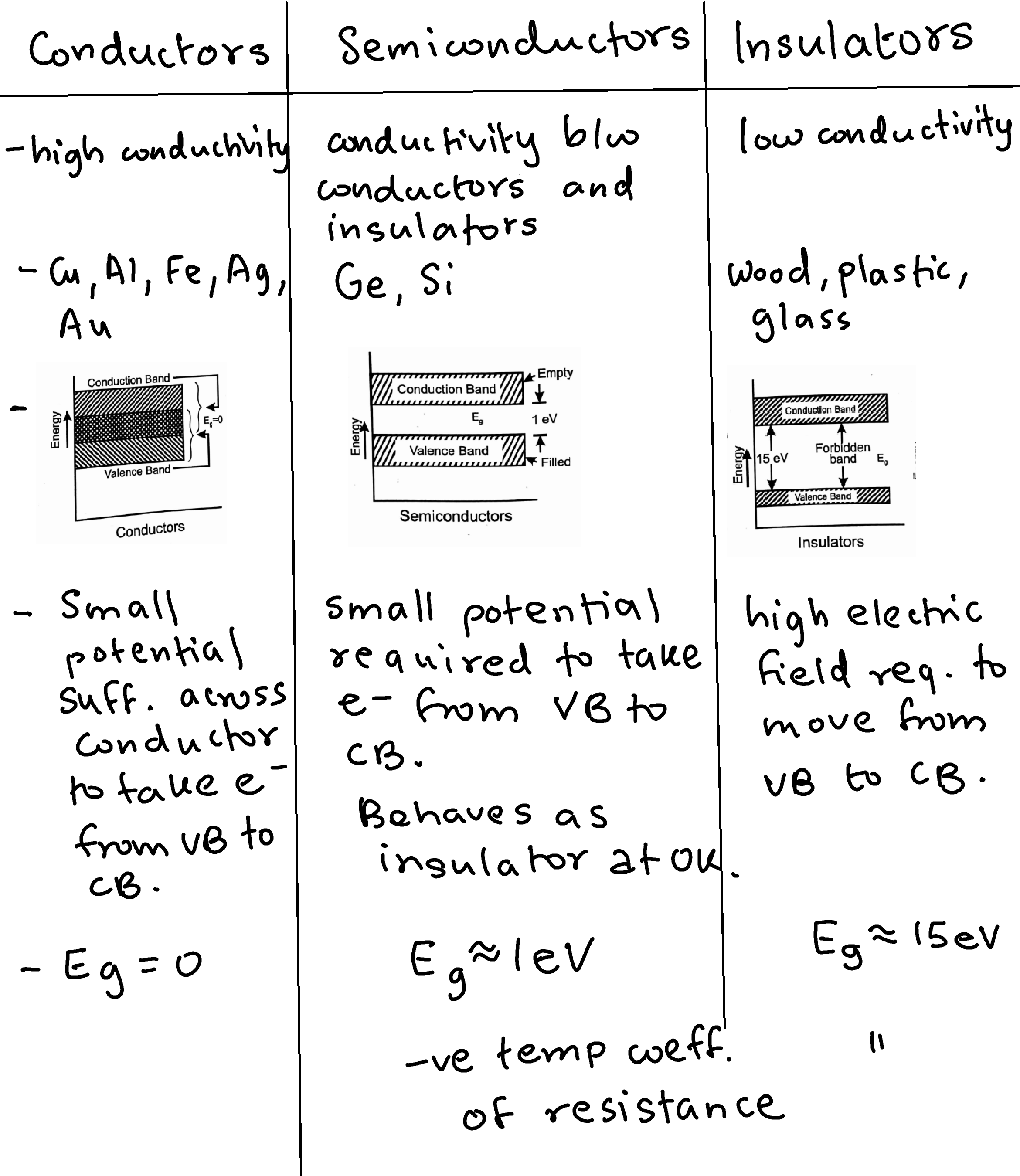Electrical conductivity (module 1)
1/13
Earn XP
Description and Tags
ch 5
Name | Mastery | Learn | Test | Matching | Spaced | Call with Kai |
|---|
No analytics yet
Send a link to your students to track their progress
14 Terms
classical free electron theory (postulates)
in metals valance electrons move freely through the crystal lattice
electrons form electron clouds similar to kinetic theory of gases
In absence off electric field electrons move randomly maintaining constant energy
Drude & Lorentz explained electrical conductivity using this model
classical gas theory concepts like- mean free path, collision time theory and average velocity can be applied to electronic gas
With an external electric field electrons accelerate opposite to the field with a drift velocity producing current.
Classical free electron theory derivation

relaxation time
when external electric field is applied electrons move with directional velocity called drift velocity. When field is switched off this velocity exponentially decays to zero.
Inital velocity at time t=0 is denoted by v0. Velocity at anytime t is given by,
v=v0e-t/toe
where toe is a constant, a measure of time taken for the system to relax when constraints like electric field is removed.
toe is the time taken for drift velocity to decay to 1/e to its initial value
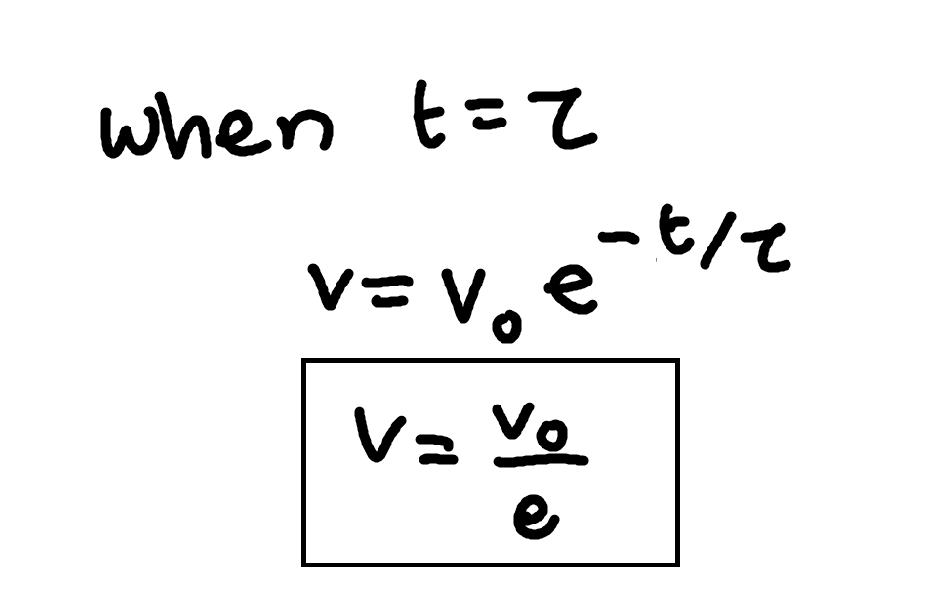
drawbacks of classical free electron theory
according to classical free electron theory the value of specific heat capacity is 4.5R (R=universal gas constant) but the experimental value is R (Dulong Petit law)
according to the theory mean free path (lamda) is 2.85nm but the value obtained experimentally is 10 times above this value.
according to the theory all ffree electrons in the metal take part in thermal conduction, but quantum theory and fermi dirac statistics reveal that only electrons near the fermi level taken part in themal and electrical conduction
Electrical conductivity of semiconductors and insulators cannot be explains using this theory
classic free electron theory states that magnetic susceptibility is inversely proportional to temperature while experimental values state that magnetic susceptibility is independent of temperature
the theory states that resistivity row directly proportion to sqrt of temperature but experimental values suggest that conductivity is directly proportional to temperature
Fermi Dirac Statistics
electrons known as fermions
in classical free electron theory electrons obey maxwell boltzman statistics
e- are indistinguishable in a solid, obey Paul’s exclusion principle
explains distribution of fermions across various energy levels for a sytem under thermal equilibrium.
Fermi Dirac Distribution
function represents the probability that a quantum state with energy Ei gets occupied by an electron
kB- Boltzman constant
T- absolute temperature
EF- fermi energy
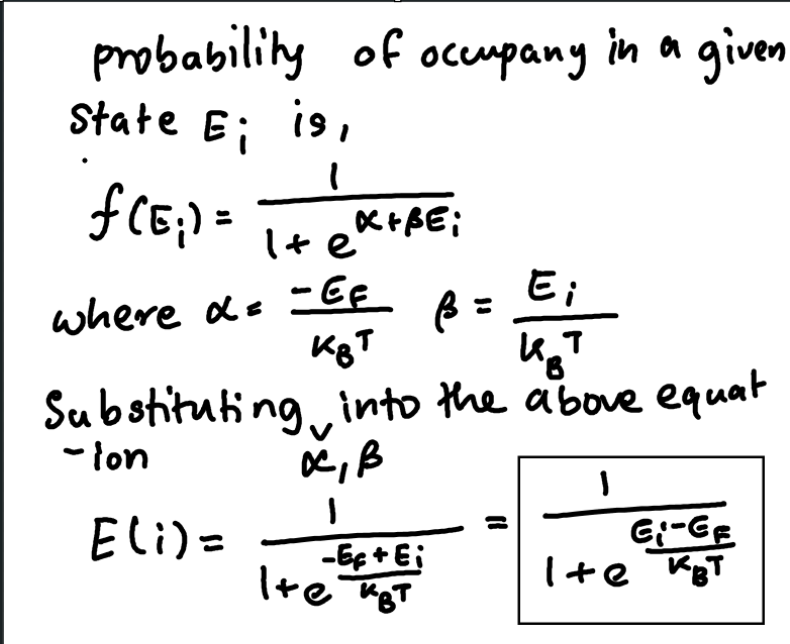
case 1
T=0K
At absolute when Ei>Ef all energy levels up to fermi level will be filled and the levels above will be empty
when Ei=Ef undefined
when Ei<Ef all energy levels up to fermi level will be empty
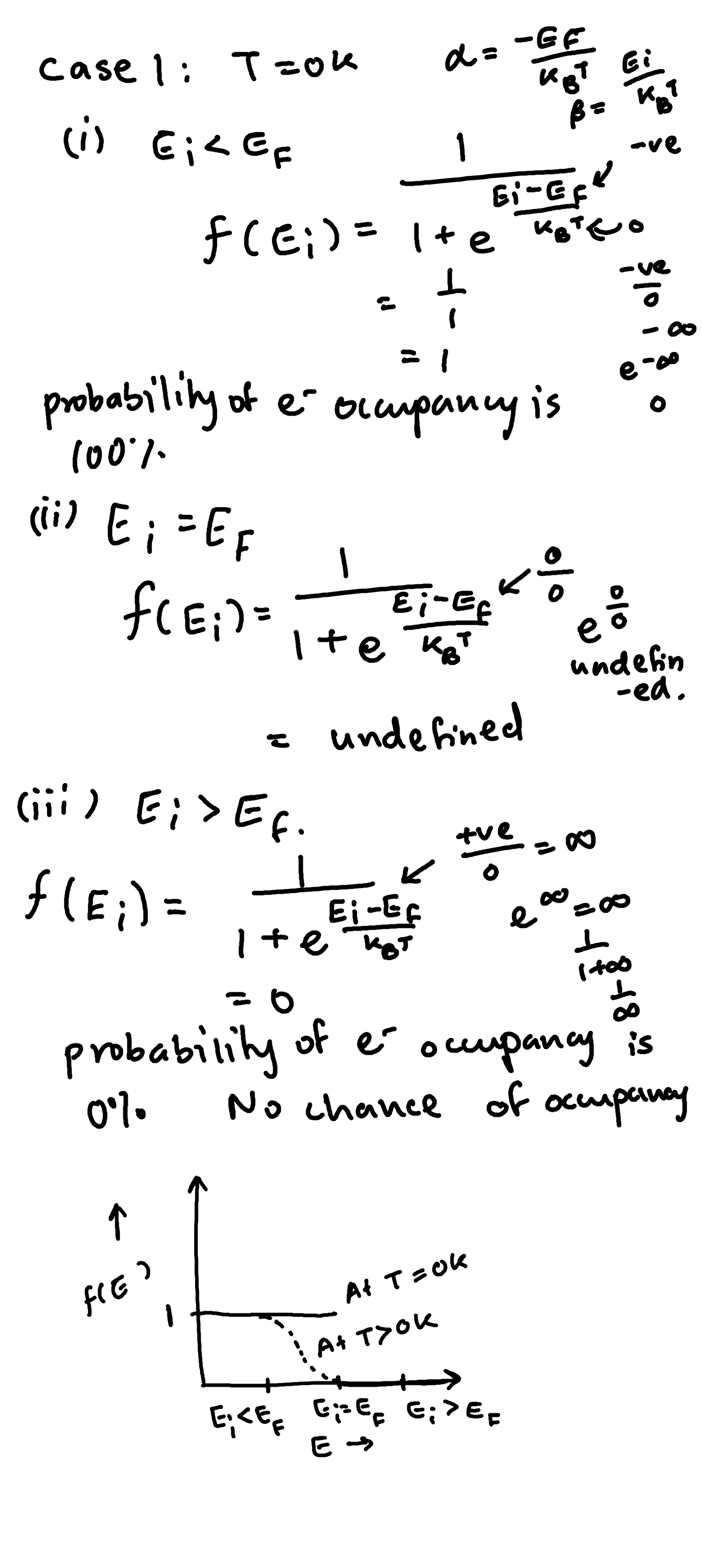
case 2
T>0K Ei=Ef
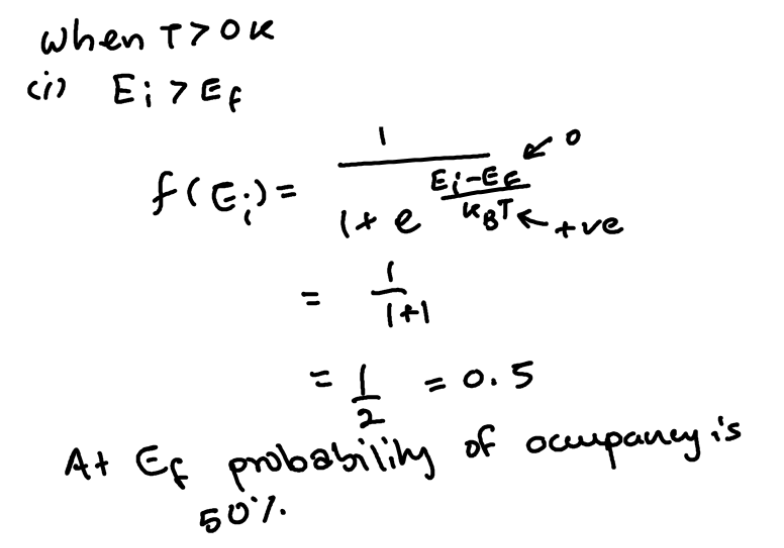
graph of fermi dirac distribution with temperature variation
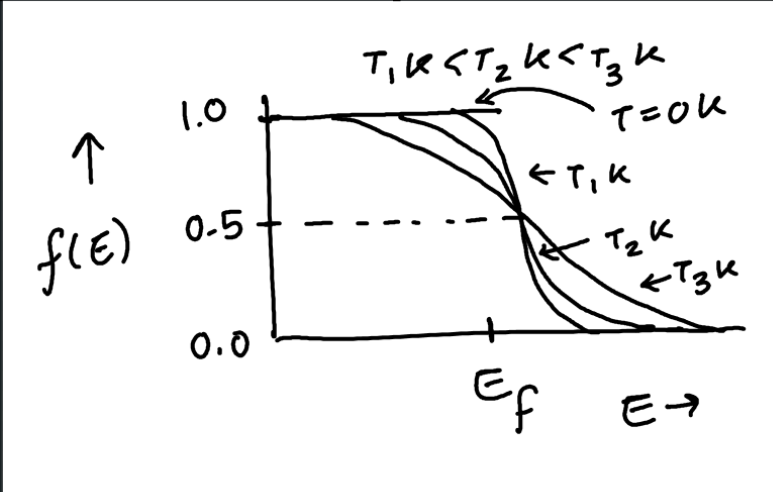
fermi energy
highest occupied energy level when T=0K
when temperature is greater than 0 probabiliy of occupancy is 1/2
Energy bands
range of energy of electrons in a solid
forbidden energy gap
energy gap between the valence band and conduction band
Classification based on forbidden energy gap
